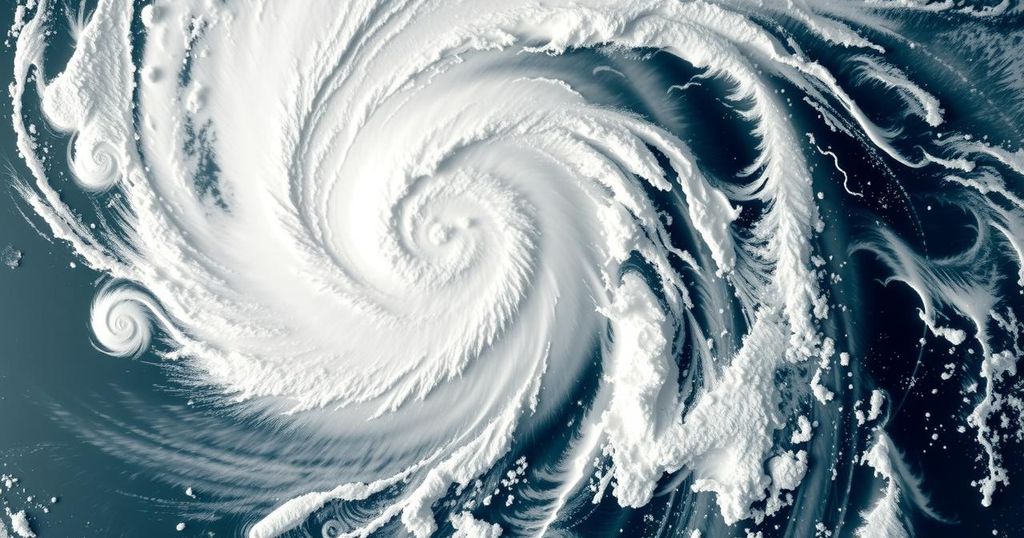Tropical Cyclone Chido Causes Significant Damage Across Southern Africa

Tropical Cyclone Chido struck Mozambique on December 15, causing widespread destruction, including over 5,800 destroyed homes, and impacting thousands of families. It was preceded by severe devastation in Mayotte. As the cyclone progresses inland towards Malawi, it remains critical for residents to follow weather updates and prepare for potential further impacts.
Tropical Cyclone Chido, which made landfall in Mozambique on December 15, has wreaked havoc across Southern Africa. Accompanied by winds exceeding 80 km/h and heavy rainfall surpassing 250 mm within 24 hours, the cyclone has caused significant destruction. The Southern African Development Community (SADC) reported that over 5,800 homes were destroyed, 41 schools sustained damage, and 2,500 families experienced power outages. As assessments continue, these figures may rise further.
Residents in affected areas, such as Pemba, are grappling with intermittent communication and power disruptions, forcing them to conserve mobile battery power for essential calls. Before impacting Mozambique, Chido had inflicted severe damage on the French territory of Mayotte, where it reached Category 4 status with winds over 220 km/h, leading to entire neighborhoods being obliterated.
Currently, as Chido moves inland into Malawi, it continues to maintain some intensity, with forecasts predicting strong winds and additional rainfall between 100-150 mm. The cyclone is anticipated to re-enter Mozambique, particularly affecting Tete Province and regions within Sofala and Manica, before dissipating near Zimbabwe by December 17. Authorities advise local residents to stay informed about ongoing weather developments through national meteorological services.
Tropical Cyclones are significant weather events that can lead to severe destruction and disruption, particularly in regions such as Southern Africa. The Southern African Development Community (SADC) is a key organization that tracks and responds to such natural disasters, providing updates on the impact of cyclones. With Cyclone Chido’s recent landfall, effective communication and swift relief efforts are crucial in supporting affected populations and mitigating further complications. Historically, tropical cyclones have posed substantial risks to coastal areas and inland regions in Southern Africa, necessitating vigilant meteorological monitoring and community preparedness.
In summary, Tropical Cyclone Chido has caused considerable devastation across Southern Africa, particularly in Mozambique and Mayotte. The destruction of homes, schools, and essential services underscores the cyclone’s severity, while ongoing assessments may reveal higher damage estimates. With the cyclone’s trajectory bringing it into Malawi and potentially further into Zimbabwe, local communities are advised to remain alert to weather updates and take necessary precautions.
Original Source: www.vaticannews.va








